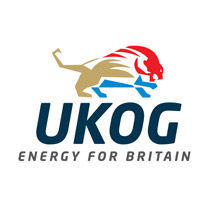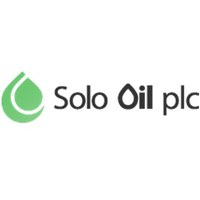UK Oil and Gas Investments Plc (LON:UKOG) Chairman and Executive Director Stephen Sanderson caught up with DirectorsTalk for an exclusive interview to discuss the Volumetric Analysis carried out by Xodus Group, timescales for the project and what this mean for UKOG
Q1: You’ve just put out news about the volumetric analysis carried out by the Xodus Group who calculate that the Arreton-2 well could contain an aggregate best estimate Oil in Place of around 219 million barrels. Could you put these findings into context for us?
A1: Yes, firstly Xodus are a very well established international oil and gas consultancy they’ve also published quite a few other reports for us, they work for super majors governments so their work is highly credible. I should state the number you’ve said, 219 million barrels is actually Oil in Place which is oil in the ground, they actually also calculated that the actual recoverable from that 219 is about 17 million barrels which is quite significant. I think the point to bear in mind on this is that out of that 17 million recoverable and the 219 oil in place the majority of it actually sits in a structure which has already been drilled in fact by two historic wells, one was drilled in the 1950’s by BP and the other was drilled by what’s now British Gas in the 1970’s. To cut a long story short, they did in fact encounter oil in several horizons they were looking for a much deeper target and they did try to test but for a number of technical and mechanical reasons they didn’t get the oil to flow to the surface. Now we’ve gone in there with new petrophysical lies and using Nutech who are arguably the world’s best expert on what’s called missed oil pay and also tight oil, you’ve probably seen that from our releases in the Weald. They’ve basically said that there are two oil columns actually within the Arreton-2 well drilled by British Gas, one which is the Portland and the Purbeck which is about 110 foot thick, about 78 feet of net pay, that means the area that you could extract oil from, and also a deeper one which about 200 feet thick which has a net pay of about 127 feet so both are quite significant. So I think Arreton is not exploration, it’s actually appraisals so what we plan to do is to go in and drill a vertical well, we’ll test the well properly and if we get a good rate of oil to the surface we’ll then go almost immediately to drill a horizontal well which will essentially be for an extended well test and put the oil on production as soon as possible. Part of the 219 million, 17 million barrels recoverable but 6 million of that is actually in two prospects which are basically almost identical lookalikes to the Arreton-2 well and the structure that we call Arreton Main and so, if Arreton Main works we’ll go and drill those and that could basically triple what we find in the Arreton Main structure.
Q2: What are the timescales involved in the project?
A2: Ok, well this is a very very new licence, so much that we haven’t actually signed on the dotted line finally yet with the oil and gas authority, the licence should be live on April 1st. The next step for UK Oil & Gas Investments is clearly to go to the Isle of Wight council and submit a formal planning application, we have had talks with them last summer and we have all our drilling preparation studies completed already on these wells so we’ll also have to do some environmental studies and then when we do that, apply to the local planning authority, new government rules say now that they have to come to a decision with us in 16 weeks after application. So what we’re really trying to shoot for essentially is to get planning permission to drill this well I would think at the end of 2017, of course once we get planning permission we have to go to three other regulatory bodies and I should say that the oil and gas industry in the UK, particularly on the on-shore, is very highly regulated, we have to four approvals to drill any well, that’s from the local county council, the environment agency, from the Health and Safety Executive and then finally from the Oil and Gas Authority which is part of the government, the Department of Energy and Climate Change. So it’s quite a lengthy process, we’re assuming it’s going to take us about a year now with the new planning timing guidelines and then hopefully we can drill our first well at the end of 2017. Now because this isn’t an exploration well, we know where we’re going to go, we know which zones we’re going to test and it’s a very shallow well, it’s only 700 odd metres to the main Portland Purbeck reservoir, so within 30 days or so we should be testing the well and as I said, if it works out to be very positive then we’ll have a plan in our planning application that we can then go and drill a horizontal well, stimulate it using non-fracking techniques and then see what sort of commercial rate we can get out. If that works, we’ll also have an extended flow test permission as well so we could be producing oil 7 selling it fairly quickly, that’s one of the real drivers for this project, it’s something that could give us cash flow fairly quickly.
Q3: What does all of this mean for UK Oil and Gas Investments as a whole?
A3: I think you saw in the RNS that we said that this is basically very significant and very material for the company because it actually really boosts our recoverable resources, I said it sort of triples them, actually maybe my maths is not so good, it almost quadruples them actually. At the moment we have on our books, in terms of conventional oil and gas, we have recoverable resources of about 4.5 million barrels of which contingent resources i.e. those that have actually been found by drilling but have not yet proven to be commercial, are about 3.75 million barrels so with 10 million of contingent resources in the Arreton Main alone, that early triples our contingent resources. Overall, we’re now up to just over 20 million barrels. So that’s a material increase for a small company like us so as I said the Isle of Wight is now a very significant part of our whole exploration, development and appraisals portfolio.


